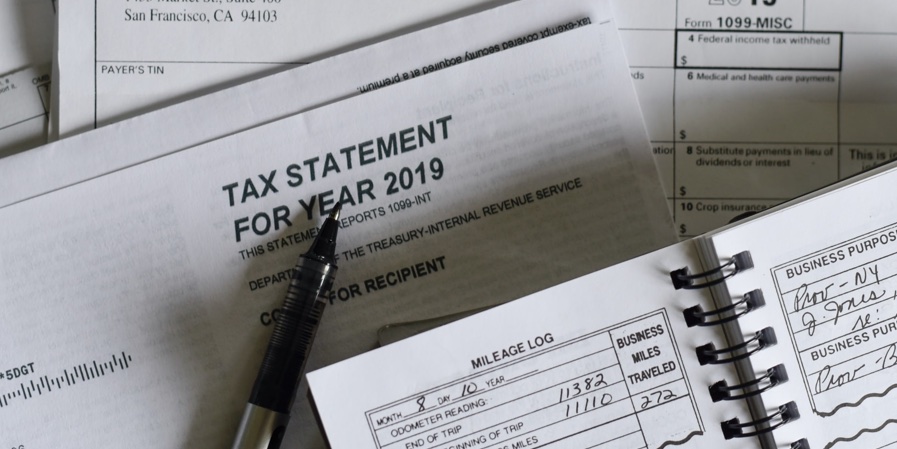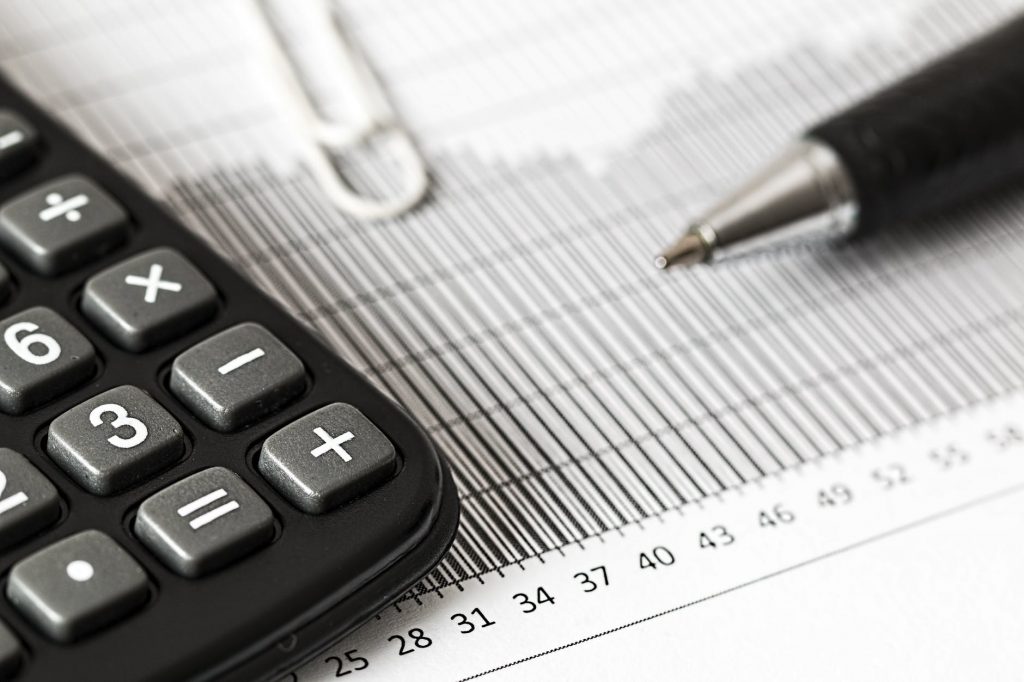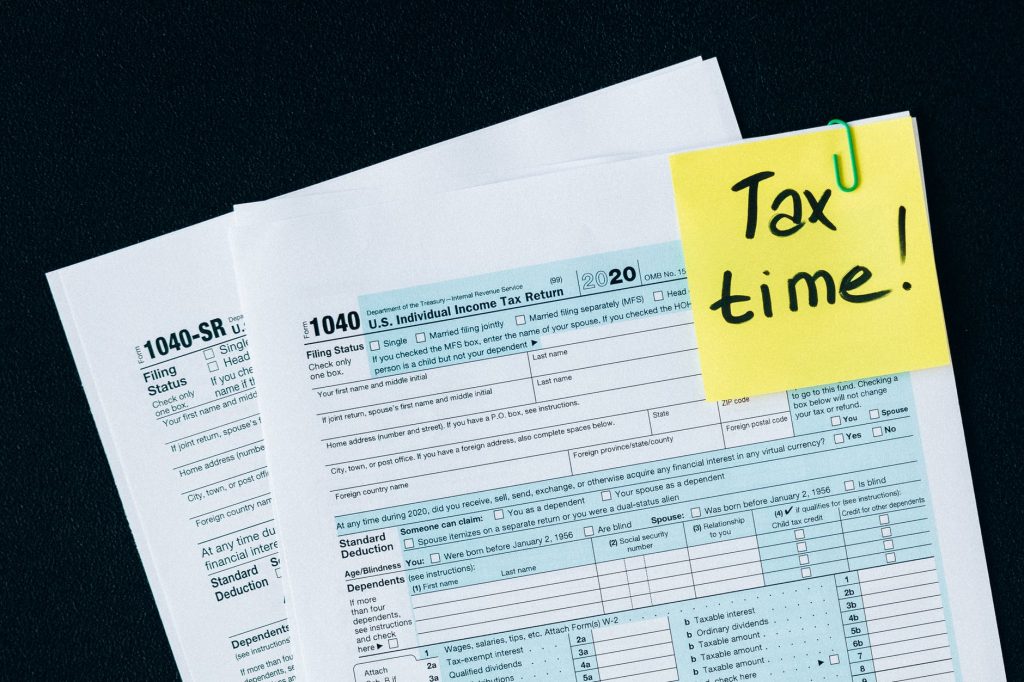Trading Taxes



Whether you are swing trading stocks, cryptos, or forex, your gains may be subject to taxation. However, understanding trading taxes can be complex. This is because you must decipher multiple obligations and rules, depending on your country of operation. This guide will help you understand trading taxes and their related concepts, including tips to help you become more tax efficient.
Note, consult a local tax professional for tailored guidance and advice.

When swing trading stocks or any other assets, anything can go wrong, leading to a capital loss. Explained simply, capital losses are taxes charged when a swing trader loses out from selling or buying security.
One key advantage of trading taxes on capital losses is that some systems write them off as additional charges in case you suffer more losses than profit in a single year.
State Capital Gains Tax
Another consideration for US traders is whether their state levies an additional tax on top of government rates. Several states don’t impose an extra tax. This includes Nevada, Florida and Washington. It’s worth checking your local regulations to ensure you don’t fall foul of the rules.
Thankfully, swing traders in Canada, the UK, India and Europe, don’t have an added rate. They only pay taxes to one government.
Income Tax
If trading is your full-time occupation and primary source of income, your trading profits may classify as self-employment earnings. Investors then typically pay income tax rates on their trading profits. It could work out advantageously for some if they are earning less than the minimum taxable threshold for their country. Savvy traders also reduce their income tax by making tax-deductible deposits from this income into a qualifying retirement account (more on those later).
Indian day traders have to add their trading profits to their overall income and deduct income tax from the whole amount. In contrast, swing trading taxes in Canada work slightly differently. Intraday trading classes as speculative business income and is combined with overall earnings. Securities held between one day and one year are instead subject to short-term capital gains rates.
Stamp Duty
Stamp Duty is a form of additional tax paid as a percentage of a house purchase or a securities transaction. Several countries, including Hong Kong, the UK, and India, have stamp duty rules ranging from 0.015% to 0.5%, depending on where you live. Importantly, you only pay stamp duty when purchasing an asset.
Financial derivatives like CFDs and forex don’t incur this charge. Those who trade cryptos and wonder about swing trading taxes will also be pleased to learn that stamp duty won’t apply to earnings. Some brokers will also include stamp duty costs when purchasing securities. While it’s only a tiny amount to pay, it’s worth checking that your trades are fully tax-compliant to avoid what can be costly penalties.

Markets & Instruments
In terms of taxation, certain nations handle various types of trading instruments differently. Swing traders can use a range of financial derivatives based on their risk tolerance and time commitments. Recognizing these distinctions is important.
Spot Markets
Buying and selling on the spot markets for shares, ETFs, bonds and gold bullion, often have the least complex tax rules. Standard regional capital gains tax typically applies as trades take place on underlying assets and securities. Traders should also consider stamp duty if their country enforces this type of tax and income tax if trading is their primary occupation.
Forex, CFDs, Futures & Options
Swing trading using derivatives like futures and options contracts is where things can get a little tricky. The taxman has significant regional differences in the way profits from futures and options are treated, with the US opting for a particularly confusing system.
In America, derivative profits are split 60/40 with 60% of profits charged at your specific band of long-term capital gains tax and 40% as short-term capital gains tax. This often works out as lower than tax charged on equivalent profits in the spot markets, especially for higher band earners.
Swing trading taxes on options in India are slightly different from regular trading. Profits are added to income as day trading earnings, even if positions are held open for extended periods. Other countries keep things simple and treat derivatives profits the same as spot market gains.
It’s always worth checking the specific rules on each asset type in your country. And importantly, as derivatives often don’t involve the exchange of physical assets, stamp duty doesn’t generally apply to forex, CFDs, futures or options.
Spread Betting
Several countries in Europe and beyond, including the UK, Germany, and Canada, don’t charge tax on gambling winnings. Traders can use this tax loophole when spread betting, which works similarly to CFDs except it is classed as gambling rather than trading.
Through spread betting, traders in regions free from gambling taxes can take all their profits home instead of cutting the taxman a share. There is also no stamp duty when spread betting, though full-time traders may have to pay income tax on their winnings.
Cryptocurrencies
The advent of the mainstream crypto market has seen many people cash in on the impressive growth of digital currencies. Swing trading, in particular, has been a partially effective crypto trading method. But due to the relevant immaturity of this market, many will be unsure what taxes they owe on profits.
Fortunately, investors will be happy to hear that taxes on swing trading crypto apply as if tokens were securities- standard regional capital gains tax applies. It’s also worth noting that unrealized gains are not subject to taxation, so long-term holders don’t have to worry until it’s time to sell.
Trading Accounts
Around the world, there are plenty of tax-sheltered or tax-advantaged trading accounts designed to encourage savings and investments. While some of these accounts may only suit long-term pension or retirement investments, swing trading assets can form a healthy part of a savings portfolio.
Here are some examples of trading accounts that apply taxation differently:
Standard Broker Accounts
Many swing traders will use a standard brokerage account, often referred to as a fund or share trading account. These accounts make trading simple, with few deposit, withdrawal or trading activity limits. Their advantage is wide-ranging access to leverage and markets not supported by more investment-focused pensions and savings accounts.
Taxation will generally apply to profits depending on the trading instrument and market. Regulations often span derivatives such as CFDs, binary options, forex and cryptos and limit the tax benefits that some of the accounts below can offer.
Pension Accounts
In addition to workplace pension schemes, many modern traders opt for the autonomy of a personal pension account to control how they manage their money. Many of these accounts allow the buying and selling of assets characterized by swing trading. However, these accounts are typically limited to unleveraged stocks, shares, ETF, and bond purchases. Contributions to these accounts can often be tax-deductible in part, if not in full.
You can also shelter some yearly profits from capital gains tax. Nevertheless, swing trading taxes may apply when the time comes to withdraw from your pension pot. Strict adherence to the rules and careful monitoring of your account can reduce or even eliminate these fees.
On the flip side, accounts are often subject to rigid withdrawal rules to prevent misuse and to limit tax benefits. Heavy penalties may be charged for early withdrawals. With this in mind, investors should only use a pension account for swing trading if they don’t need the profits until retirement age.
Savings Accounts
Want protection from taxes but don’t fancy waiting until retirement to access your profits? Perhaps a savings trading account is more suited to you. On the downside, traders may be limited in the assets they can access with a savings account, though account holders are usually free to withdraw any contributions and earnings tax-free. With that said, there are contribution limits that cap the amount traders can pay into a savings account.
Look out for stocks and shares savings accounts in your region. They aren’t available in all regions, however, with the USA in particular, limiting access to profits until age thresholds have been met. Fortunately, tax-free trading in the UK and Canada are more widely available with these types of accounts.
Top Tax Tips
Here are some of our key tips for keeping a handle on swing trading taxes:
- Brokers – Ideally, your chosen trading platform will either have integrated journaling software or support third-party offerings. Journal software can automatically calculate profit and loss on each trade, collating the significant numbers so that you don’t have to. It allows investors to see how long their position stood open and what type of taxation the trade may be subject to. Customizable timeframes also help when working out swing trading taxes in a country like the UK, which has a separate ‘tax year.’ If this facility is not available, a close second when calculating taxes for swing trading is the ability to view total monthly or yearly profit and loss across all trades. This will make working out your tax obligations easier.
- Record Keeping – Leading on from the last point, maintain personal profit/loss records to ensure they are up-to-date and accurate. With the help of third-party software, compile your trades into a spreadsheet or alternative program to analyze performance. Reliable record-keeping is particularly important for investors who have multiple trading accounts. Searching through several brokers for relevant information can be a daunting task if left to the last minute.
- Deadlines – Plan for essential dates in the tax year. This will create less stress and means you can put some money aside for payments. Importantly, make sure you aren’t forced to liquidate open positions to cover your tax bill – losing potential profits.
- Professional Help – Complex tax regulations can trip up even the most experienced traders. Some countries may require investors to break down different types of trading activity and pay varying tax rates on each. Enlisting specialists to help ensure you comply with different swing trading taxes can give you peace of mind. Compared to the often hefty fines and even jail sentences imposed on those who fall foul of tax regulations, using a professional tax service can prove good value for money.

How to Avoid Taxes Swing Trading
Paying trading taxes may sound like a nightmare. However, failing to pay can land you with significant consequences. For example, in the UK, penalties can start from 5% and reach 47.5% of the amount you owe if you continue to fail to pay.
Fortunately, there are ways you can minimize your tax bill on swing trading assets. One option is to hold your position for an extended period to become a long-term investor. You can also hold your investments in tax-advantaged accounts, like a Roth IRA or 401k.
Another strategy you can adopt is tax-loss harvesting. This involves selling financial instruments at a loss, which offsets your gains. Typically, these losses do not expire. Instead, responsible agencies carry them forward into the upcoming year. Note, wash-sale rules prevent traders in most jurisdictions from buying back securities for a set period after selling. This period will often be 30 days or longer.
A third approach you can use to avoid taxes on trading stocks is by donating them. Suppose you’re a charitable individual whose portfolio has a high value. In that case, you could cherry-pick a few stocks and donate them to charity. Although you won’t recognize capital gains by doing so, you’ll potentially pay less tax based on your tax bracket.
Note, it’s important to stay within the relevant rules and regulations in your region. Consult a professional tax advisor for guidance.
Final Thoughts
While conforming to complex tax laws can feel daunting, you must comply with relevant rules and regulations. Many successful forex, stock and crypto swing traders get caught out every year and end up facing significant fines or worse. For beginners, in particular, it’s worth understanding your obligations before you invest funds.
If you’re not sure what you owe, seek professional support or use specialist tax software to ensure you don’t fall foul of the rules.
FAQs
What Are The Differences Between Day Trading Vs Swing Trading Taxes?
Both types of trading activity fall under short-term capital gains taxation in most countries. With that said, some places like India tax the two separately due to the overnight holding of swing trading positions.
How Are Swing Trading Taxes Calculated In Canada?
In Canada, 50% of the value of any capital gains is usually taxable. This 50% is added to your overall income to calculate taxation holistically.
Is Swing Trading Crypto Subject To Taxes?
Some regions treat cryptocurrency as digital gambling assets, meaning profits are tax-free. With that said, some regulators and agencies treat earnings from swing trading crypto as regular securities income.
Does Swing Trading Always Mean Paying Taxes?
Not necessarily: if you make a loss over the year, there is no tax to pay. Additionally, some regions have a tax-free allowance based on your total income.
What Is Tax-Loss Harvesting?
Tax-loss harvesting is used to reduce the amount of tax owed by an individual. Investors essentially sell their trades in losing positions. The losses made reduce your total income and profit, and after a set period, you can re-enter the trade and resume your position.
How Does Swing Trading Affect Taxes?
Swing trading and taxes are inseparable. However, your taxes on trading vary significantly based on how frequently you trade, your region and the taxation system’s remit you fall under. As a result, gains may be subject to some tax deductions.
Do Swing Traders Pay More Taxes?
Swing trading involves holding your investments for a relatively short period (less than a year). Short-term capital gains are subject to comparatively higher taxes than long-term gains. Therefore, swing traders tend to pay more taxes than long-term investors. Swing trading taxes vary, but they often range between 10% and 39.6%, depending on the country’s income tax brackets.
How Is Day Trading Income Taxed?
Day traders are normally subject to short-term capital gains tax. Rates vary depending on your jurisdiction and total additional income. Consult a tax specialist for guidance. Alternatively, free day trading taxes calculators can be found online.
What Is Margin Tax?
Margin tax is the tax charged when trading on margin. Some investors use borrowed funds from brokers to swing trade financial instruments. Whilst margin trading doesn’t attract taxes per se, you may pay tax on earnings from a leveraged trade.
How Are Margin Accounts Taxed?
Margin accounts are like cash investment accounts where you deposit your money to invest in a market. Taxation on margin accounts varies due to regional differences. For instance, in Canada, only 50% of your capital gains will be subject to taxes.
Are Taxes The Same With Different Financial Instruments?
While taxes in swing trading may vary, what doesn’t make any significant difference is what the investor is trading. Trading forex taxes are usually the same as crypto and stock taxes. Similarly, futures taxes are the same as options taxes. Tax systems don’t tend to care about whether you’re buying or selling Tesco, oil or gold shares. Instead, they focus on what you earn or lose from your trades. With that said, some products such as binary options and spread betting are more speculative than others. And in the United Kingdom (UK), for example, speculative investments are tax-free.
Are There Tax-Free Countries In The Trading World?
Yes – some countries do not charge taxes on swing trading. Those countries include Monaco, Bermuda and the United Arab Emirates.
Do I Pay Taxes When Using Trading Bots?
Like any other type of investment, gains made through trading bots may be subject to taxation. Fortunately, you can automate your tax reporting process to help monitor your obligations.
